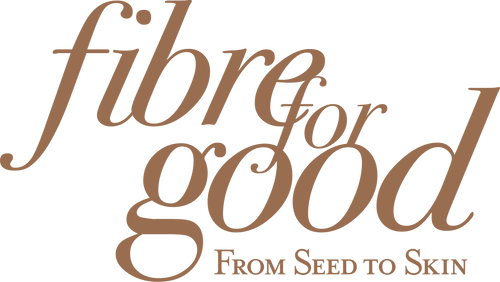Our motto is Fibre for Good – From Seed to Skin. But what do we mean by that?
In a nutshell, it means that we strive to ensure that every aspect of our business has the smallest negative impact on the planet and the highest positive impact on health and society. Nowhere is our motto more evident than in the relationship we have with our amazing farmers.
To appreciate the statement above, let's compare our organic cotton farmers with commercial cotton farmers in India.
In India, the push for bigger, cheaper yields in commercially produced cotton involves harmful chemicals and the use of genetically modified seeds. Farmers endure exploitation and unsafe work practices as part of this cost saving process. The result – a cheaper price point at your local retailer for a garment of lower quality, higher toxicity and greater human cost.
A corporate monopoly on genetically modified cotton seeds sees Indian farmers pay up to four times the cost of traditional seeds. These seeds are modified to be resistant to the evasive boll worm, but require heavy irrigation and greater quantities of fertiliser and pesticides – which the corporation also controls. Every year, farmers must purchase fresh seeds as they are sold only as hybrid cultivars, which prevents growers from replanting them the following year. All of this is a considerable outlay and a low yielding harvest or a crop affected by monsoon or drought will mean that they will not be able to cover costs, let alone make enough to live.
In fact, things have become so bad for cotton farmers in India that thousands – 8000 in 2014 – commit suicide annually due to crippling financial hardships, exacerbated by anxiety and depression believed to be brought on by exposure to harmful pesticides.
In comparison, our farmers in Northern China have been continuously farming in the region for thirteen generations. They use seeds directly descended from plants introduced to China around 200BCE – a variety of cotton plant that is drought tolerant and perfectly suited to the arid landscape.
Organic Natural Colour Cotton (ONCC) crops are grown regeneratively, a form of organic horticulture that sees farmers using crop rotation, companion plantings and livestock to control pests and enrich the soil. Cotton is hand picked, ensuring the integrity of the fibre and reducing our carbon footprint. Once the crop is harvested, the farmers are free to keep the seeds to use for future crops, cooking oil and animal feed.
Each year, before our farmers begin to sow, we agree on a price up front for the future crop, and pay them 50% to cover cultivation costs and ensure their family has money to live on. Once the harvest is in, we pay the balance. If the season is poor and the crop is less than expected, there is no penalty. We know that if we look after our farmers, they will look after us.
Although an ONCC crop is nearly three times more expensive per tonne than commercially grown and harvested cotton, the end product is high quality, 100% organic, 100% chemical free and our farmers are happier and healthier – both physically and mentally – than the average commercial cotton farmer.
In time, our hope is that more consumers will endorse products with responsible supply chains, encouraging retailers, manufacturers and growers to think more about striking a sustainable, ethical balance between process and profit.
Paying a few dollars more for a better, healthier, sustainable product today may lead to a better life for exploited souls around the world in the future.

